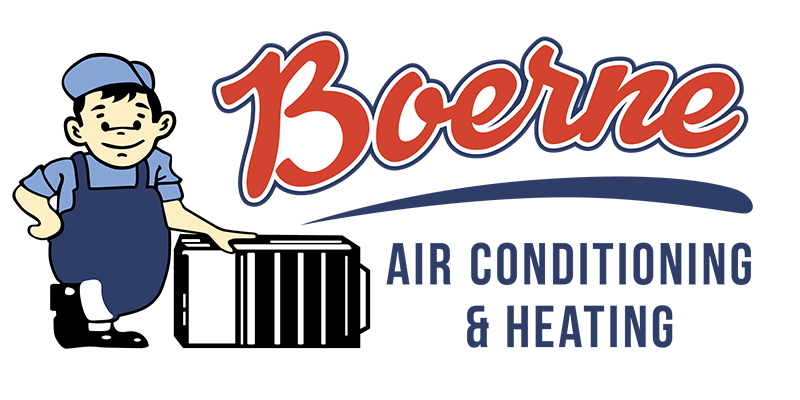16 Jan Air Filter Maintenance & Best Practices
Maintaining and using air filters properly is crucial for ensuring good indoor air quality and the health and lifespan of your HVAC system.
Here are some best practices for proper air filter maintenance:
Regular Replacement: Follow the manufacturer’s recommendations for replacing air filters. Typically, it’s advised to replace them every 1 to 3 months, but this can vary based on the type of filter and usage.
Choose the Right Filter: Select the air filter that suits your HVAC system and meets your specific needs. Filters come in various MERV (Minimum Efficiency Reporting Value) ratings, indicating their effectiveness in trapping particles. Higher MERV ratings capture smaller particles but may reduce airflow.
Check Filter Size: Ensure that the filter you use fits correctly in your HVAC system. A filter that doesn’t fit properly may allow unfiltered air to bypass the filter.
Inspect Regularly: Check your air filter regularly to see if it’s dirty or clogged. If it appears dirty before the recommended replacement time, consider changing it sooner.
Use High-Efficiency Filters for Allergies: If you suffer from allergies or respiratory issues, consider using high-efficiency filters designed to capture smaller particles like pollen, pet dander, and dust mites.
Consider HEPA Filters: High-Efficiency Particulate Air (HEPA) filters are highly effective at trapping tiny particles. However, using HEPA filters may require modifications to your HVAC system due to their dense structure.
Keep Vents and Registers Open: Ensure that vents and registers are not blocked by furniture or other objects. This helps maintain proper airflow and prevents the system from working harder than necessary.
Maintain HVAC System: Regularly maintain your heating and cooling system, including cleaning coils and checking ducts for leaks. A well-maintained system is more efficient and puts less strain on the air filter.
Consider Smart Thermostats: Some smart thermostats can remind you when it’s time to change the air filter based on usage and air quality conditions.
Understand Filter Types: Different types of filters serve different purposes. Fiberglass filters are cost-effective but may not trap smaller particles effectively. Pleated filters offer better filtration, while electrostatic filters use static electricity to attract particles.
Just as good air filter maintenance can have cooling and heating benefits, poor maintenance can have several negative impacts on your HVAC system.
Here are some ways in which neglecting air filter maintenance can affect your HVAC system:
Reduced Efficiency: A clogged or dirty air filter restricts the airflow, making the HVAC system work harder to maintain the desired temperature. This increased workload can lead to reduced energy efficiency and higher energy bills.
Increased Energy Consumption: When the HVAC system has to work harder due to a dirty filter, it consumes more energy. Over time, this can result in increased energy costs.
Shortened Lifespan: The additional strain caused by restricted airflow can lead to increased wear and tear on the HVAC system components, potentially reducing the lifespan of the system. Regularly changing the air filter helps maintain optimal system performance and longevity.
Poor Indoor Air Quality: The primary function of an air filter is to trap dust, allergens, and other particles, preventing them from circulating in your home. A dirty or clogged filter cannot effectively capture these particles, leading to poor indoor air quality.
Frozen Evaporator Coils: Restricted airflow can cause the evaporator coils to become too cold and freeze. This can disrupt the cooling process and may result in the HVAC system not working properly.
Overheating & System Shutdowns: In extreme cases, a severely clogged air filter can cause the HVAC system to overheat. This may lead to system shutdowns or damage to critical components.
Uneven Heating or Cooling: Poor airflow can result in uneven distribution of heated or cooled air throughout your home. Some rooms may be too hot, while others may be too cold.
Increased Repair Costs: Neglecting air filter maintenance can lead to various issues within the HVAC system, requiring more frequent repairs. Regular filter changes can help prevent costly repairs and keep the system running smoothly.
Decreased Comfort: An HVAC system that is not functioning optimally due to a dirty filter may struggle to maintain a comfortable indoor environment. You may experience temperature fluctuations and reduced comfort levels.
To avoid these issues, it’s crucial to follow the manufacturer’s recommendations for air filter replacement and conduct regular maintenance on your HVAC system. Regular filter changes are a simple yet effective way to ensure the efficient and reliable operation of your HVAC system. Remember to consult your HVAC system’s user manual and filter manufacturer’s recommendations for specific guidance tailored to your equipment.
